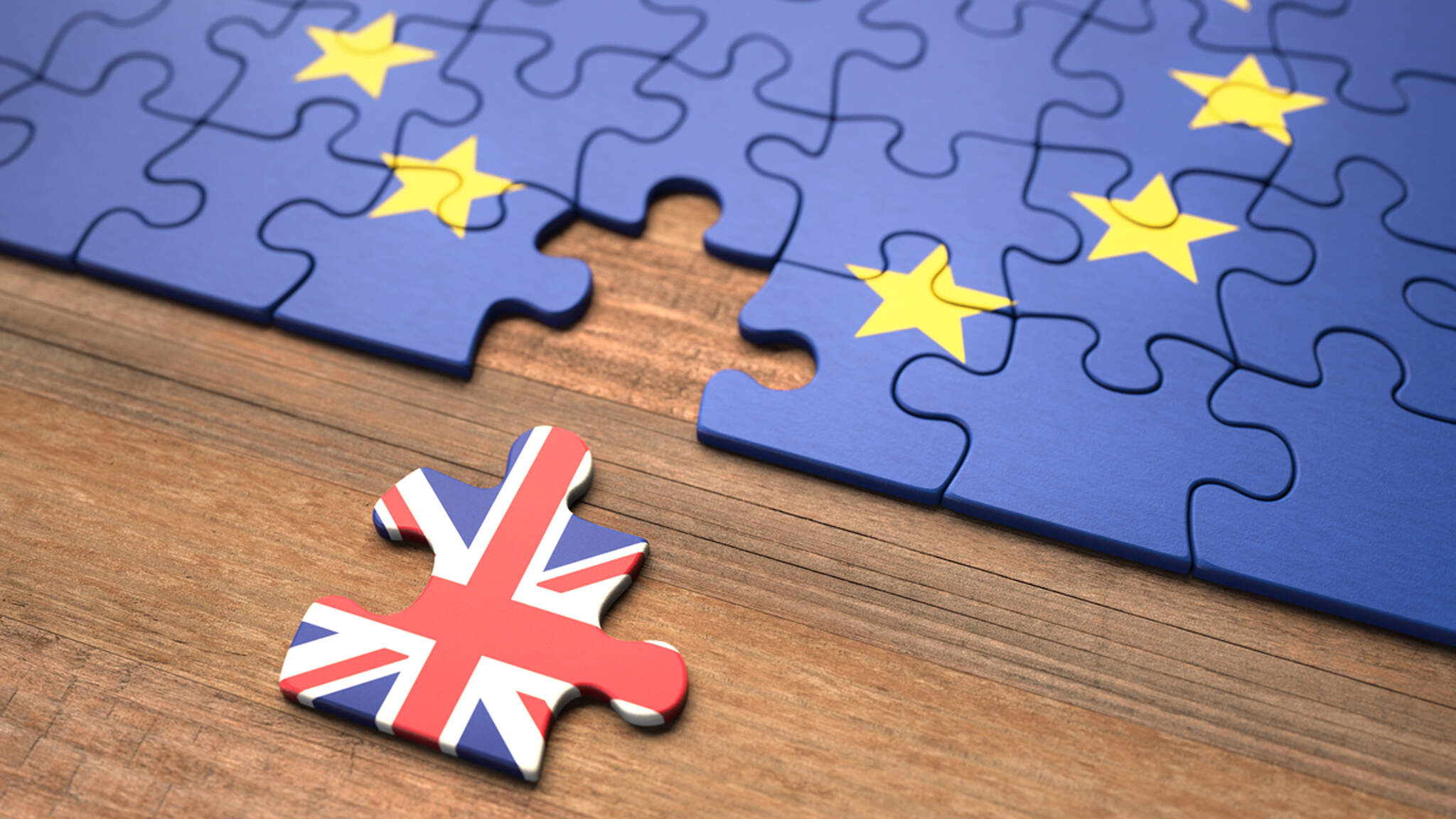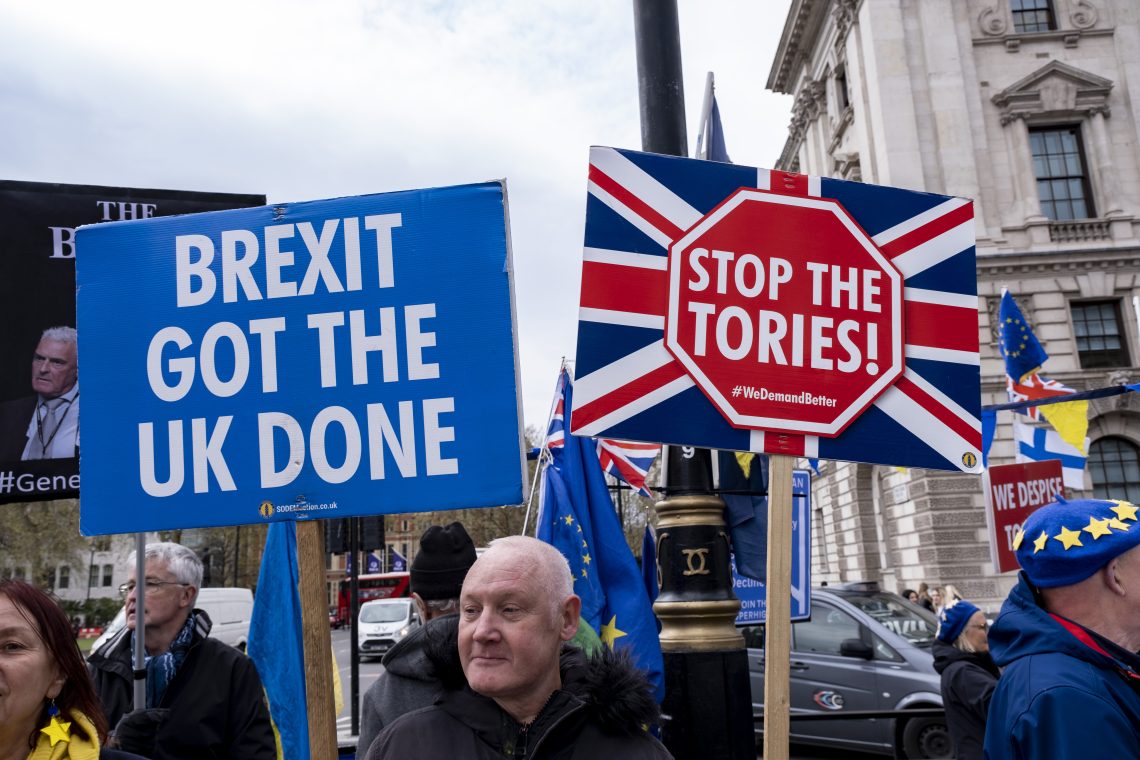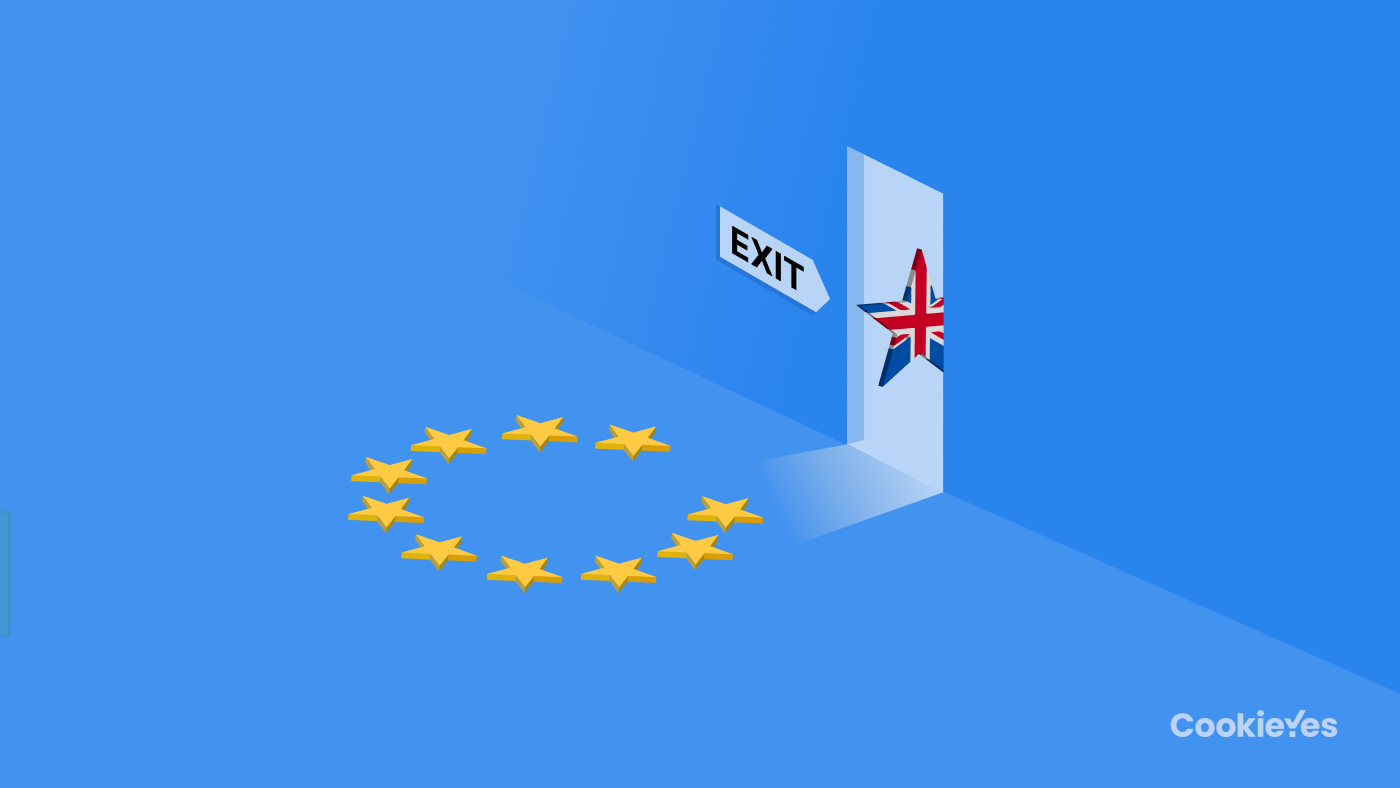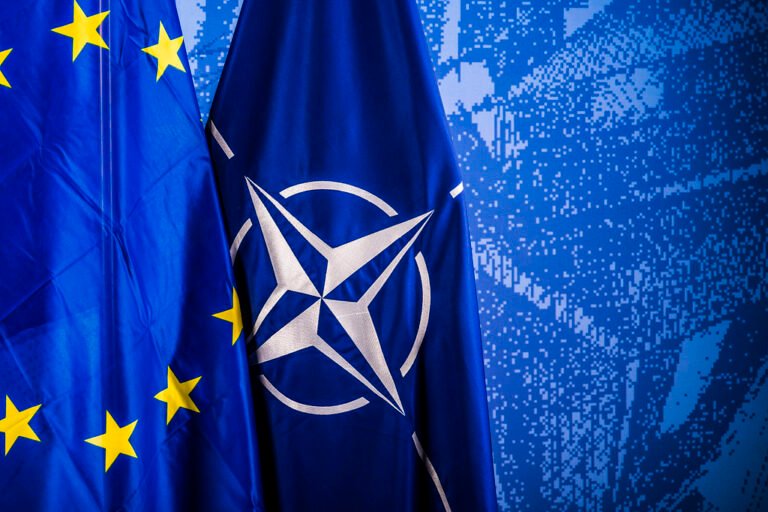Brexit has been a hot topic for years. It’s about the UK leaving the EU.
Brexit, short for “British Exit,” has reshaped Europe’s political landscape. The decision impacts trade, immigration, and governance. For many, understanding Brexit’s effects is crucial. This topic affects businesses, travelers, and residents alike. Whether you’re in the UK or the EU, it matters.
So, what does Brexit mean for you? How does it change daily life and future plans? In this blog, we’ll explore Brexit’s key points. We’ll discuss its origins, the transition period, and the ongoing negotiations. By the end, you’ll have a clearer picture of Brexit’s impact and what to expect next. Stay tuned to learn more about this significant event.

Credit: www.dachser.us
Brexit’s Impact On Trade
Brexit has significantly changed the trade landscape for the UK. The decision to leave the European Union (EU) has led to new challenges and opportunities in trade. Businesses have had to adapt to new regulations and trading conditions.
Changing Trade Agreements
Brexit has forced the UK to renegotiate many trade agreements. Previously, the UK benefitted from agreements made by the EU. Now, the UK must establish its own deals. This process is time-consuming and complex.
New agreements bring uncertainty. Businesses must understand and comply with new rules. This can increase costs and delay shipments. Yet, new deals also offer chances for fresh partnerships.
Tariffs And Trade Barriers
Brexit has introduced new tariffs and trade barriers. Goods moving between the UK and EU now face customs checks. These checks can lead to delays and added costs. Many businesses have had to adjust their supply chains.
Tariffs can make goods more expensive. Consumers may see higher prices. Businesses might lose their competitive edge. Yet, some industries may benefit from reduced competition.
Trade barriers can also impact services. The UK must now navigate different regulations for services in the EU. This can complicate operations for service providers.

Credit: www.gisreportsonline.com
Economic Consequences
Brexit has led to many discussions about its economic consequences. The separation from the EU has impacted different areas of the UK’s economy. Businesses, investors, and everyday citizens have felt these changes.
Gdp Growth
GDP growth is a crucial indicator of economic health. After Brexit, the UK faced slower GDP growth. Many experts predicted a decline in economic activity. Reduced trade with EU countries played a big role. New trade barriers and tariffs increased costs for businesses. This led to lower production and fewer jobs. Uncertainty about future trade deals also hurt GDP growth. Businesses paused expansion plans, waiting for more stability.
Investment Flows
Investment flows are essential for a thriving economy. Brexit caused some investors to reconsider their decisions. Foreign investments in the UK decreased. Investors saw new risks and challenges. They worried about losing easy access to the EU market. Some companies moved their operations to other EU countries. This shift reduced the inflow of capital. Investment in key sectors like finance and manufacturing declined. Uncertain regulations and potential trade disruptions made the UK less attractive. The long-term impact on investment flows remains a concern.
Effect On The Uk Economy
Brexit has had a significant impact on the UK economy. The changes touch on various sectors, from manufacturing to services. Adjustments in trade policies and regulations have reshaped the economic landscape. Let’s delve into the specific areas affected.
Sectoral Shifts
Many industries in the UK have experienced sectoral shifts. The financial sector has seen companies moving their bases to other European cities. Paris, Frankfurt, and Dublin have become new hubs for businesses.
Meanwhile, the manufacturing sector faces higher costs. New tariffs and customs checks delay the supply chain. This makes production more expensive and less efficient.
The agriculture sector also feels the pinch. Farmers depend on seasonal labor. Brexit has made it harder to get workers, affecting productivity. The fishing industry hoped for benefits. But, it faces challenges with access to key markets.
Labor Market Changes
The labor market has seen significant shifts. A reduction in EU workers has created gaps in various sectors. This is particularly true for the healthcare and hospitality industries.
To illustrate:
| Sector | Impact |
|---|---|
| Healthcare | Shortage of nurses and doctors |
| Hospitality | Lack of staff in hotels and restaurants |
| Construction | Fewer workers, slower projects |
Businesses now face challenges in hiring. They need to find skilled workers within the UK. This increases competition and wages. Small businesses struggle the most. They cannot offer competitive salaries, leading to staff shortages.
Overall, the labor market is in flux. Companies must adapt to these new realities. The UK government needs to provide support to ease these transitions.
Impact On The Eu
Brexit has significant effects on the European Union. It alters economic stability, trade relations, and political dynamics. Understanding these impacts helps us see the broader picture of this historical event.
Economic Stability
The EU’s economic stability faces new challenges after Brexit. The UK was a major contributor to the EU budget. Without it, the EU must find new funding sources.
A table below shows the approximate contributions before and after Brexit:
| Period | EU Budget Contribution (in billion €) |
|---|---|
| Before Brexit | 16 |
| After Brexit | 0 |
Member states now need to contribute more or the EU must cut spending. This shift could affect various programs and projects.
Trade Relations
Brexit changes how the EU trades with the UK. The UK is no longer part of the single market. This affects tariffs, customs, and regulations.
Below are key points on trade changes:
- New tariffs on goods
- Customs checks at borders
- Different regulations to comply with
These changes may slow down trade and increase costs. EU businesses must adapt to new rules. Some sectors, like agriculture and manufacturing, could be hit harder.
To summarize, Brexit impacts the EU’s economic stability and trade relations. The EU must adapt to these changes to maintain its cohesion and growth.
Global Trade Relations
Brexit has reshaped the United Kingdom’s role in global trade. The UK’s departure from the European Union has led to a need for new trade deals and partnerships. This shift impacts global trade relations significantly. Let’s delve into how the UK is managing these changes.
New Trade Partners
Post-Brexit, the UK seeks new trade partners. The country has signed deals with nations worldwide. Japan, Australia, and Canada are some examples. These agreements aim to boost economic growth. They open up new markets for British businesses. This strategy helps mitigate the loss of easy access to the EU market.
Trade deals focus on various sectors. Technology, agriculture, and manufacturing are key areas. These partnerships bring opportunities and challenges. Businesses must adapt to new regulations and standards. But, the potential benefits are worth the effort.
Global Market Position
Brexit affects the UK’s position in the global market. The country aims to strengthen its independence. It wants to be a global trading nation. This goal requires strategic planning and execution. The UK must compete with other major economies.
The government is working to make the UK a hub for international trade. Investment in infrastructure and technology is crucial. These efforts aim to make trading easier and more efficient. The UK’s global market position will evolve over time. Its success depends on how well it adapts to new trade dynamics.
Policy Responses
Brexit has brought significant changes to the UK. The government has had to respond with new policies. These policy responses aim to manage the transition and address emerging challenges. Below, we explore the key strategies and regulatory adjustments made by the UK government.
Government Strategies
The UK government has implemented various strategies to navigate Brexit. These strategies focus on maintaining stability and fostering growth.
- Trade Agreements: The UK has pursued new trade deals with countries outside the EU.
- Economic Support: There are economic support packages for businesses affected by Brexit.
- Immigration Policies: New immigration rules have been introduced to control the flow of people.
Regulatory Adjustments
Brexit has necessitated several regulatory changes. These adjustments ensure compliance and smooth operations across sectors.
Key Regulatory Adjustments include:
- Customs Regulations: New customs procedures for goods moving between the UK and the EU.
- Financial Services: Adjustments to financial regulations to maintain market stability.
- Environmental Standards: Changes to environmental policies to align with UK priorities.
The table below summarizes key regulatory adjustments:
| Sector | Adjustment |
|---|---|
| Customs | New customs declarations required |
| Financial Services | Updated compliance requirements |
| Environment | Revised environmental standards |
These strategies and adjustments show the government’s commitment to a smooth transition post-Brexit.
Future Trade Scenarios
The future of trade relations between the UK and the EU remains uncertain. Post-Brexit, various scenarios could unfold, each with distinct implications for businesses and economies. In this section, we’ll explore two potential outcomes: an Optimistic Outlook and a Pessimistic Forecast.
Optimistic Outlook
An optimistic scenario envisions the UK negotiating favorable trade deals. These deals could enhance economic growth and stability. Key features of this scenario include:
- Tariff-Free Trade: Both parties agree to eliminate tariffs on most goods.
- Streamlined Customs: Simplified customs procedures reduce delays.
- Strong Services Sector: The UK maintains access to the EU’s service market.
In this scenario, businesses benefit from continuity and minimal disruption. This could lead to increased investment and job creation. The table below highlights potential benefits:
| Benefit | Impact |
|---|---|
| Tariff-Free Trade | Lower costs for businesses and consumers |
| Streamlined Customs | Faster shipping and reduced paperwork |
| Strong Services Sector | Continued growth in finance and technology |
Pessimistic Forecast
A pessimistic scenario depicts a more challenging trade environment. Key elements of this forecast include:
- High Tariffs: Increased tariffs on goods lead to higher prices.
- Complex Customs: Lengthy customs checks cause delays.
- Restricted Services: Limited access to the EU’s services market.
Businesses face higher costs and operational hurdles. This could result in reduced investment and potential job losses. The table below outlines possible drawbacks:
| Drawback | Impact |
|---|---|
| High Tariffs | Increased costs for businesses and consumers |
| Complex Customs | Slower shipping and more paperwork |
| Restricted Services | Challenges for the finance and technology sectors |

Credit: www.cookieyes.com
Business Adaptation
Brexit has brought significant changes for businesses. Many companies must adapt to new rules and conditions. This adaptation impacts various aspects of their operations. Corporate strategies and supply chain management are key areas. Below, we explore how businesses are adjusting in these areas.
Corporate Strategies
Businesses need new strategies post-Brexit. Many are reassessing their market approach. They must consider new regulations and trade barriers. Some companies are shifting their focus to different markets. Others are forming new partnerships to stay competitive.
Flexibility is crucial. Businesses must be ready to change plans quickly. The ability to pivot can make a big difference. Risk management strategies are also essential. Companies must prepare for potential disruptions.
Supply Chain Management
Brexit has complicated supply chains. Businesses face new customs checks and tariffs. Many are reviewing their supply chain processes. They aim to minimize delays and extra costs. Some companies are sourcing materials from different countries. Others are increasing their stock levels to avoid shortages.
Technology plays a key role. Many businesses are investing in digital tools. These tools help track shipments and manage inventory. Efficient supply chain management is more important than ever.
FAQs
What Is Brexit?
Brexit refers to the United Kingdom’s decision to leave the European Union. The term combines “Britain” and “exit. “
When Did Brexit Happen?
Brexit officially occurred on January 31, 2020. The UK then entered a transition period until December 31, 2020.
Why Did The UK Leave The EU?
Many UK citizens felt that EU membership limited their sovereignty. Economic and immigration concerns also played significant roles.
How Does Brexit Affect Trade?
Brexit introduces new trade agreements between the UK and EU. Customs checks and tariffs may apply to goods crossing borders.
Conclusion
Brexit has changed the landscape of politics and trade. People feel uncertain and hopeful. Businesses are adjusting to new rules. Citizens wonder about future relations. The journey is ongoing, with many challenges ahead. Governments need to find solutions that benefit everyone.
As we move forward, cooperation is key. Understanding and adapting will help navigate this new reality. Brexit marks a significant shift, yet opportunities remain. Stay informed and engaged to understand its impacts. The story of Brexit continues to unfold. Let’s watch and learn together.








